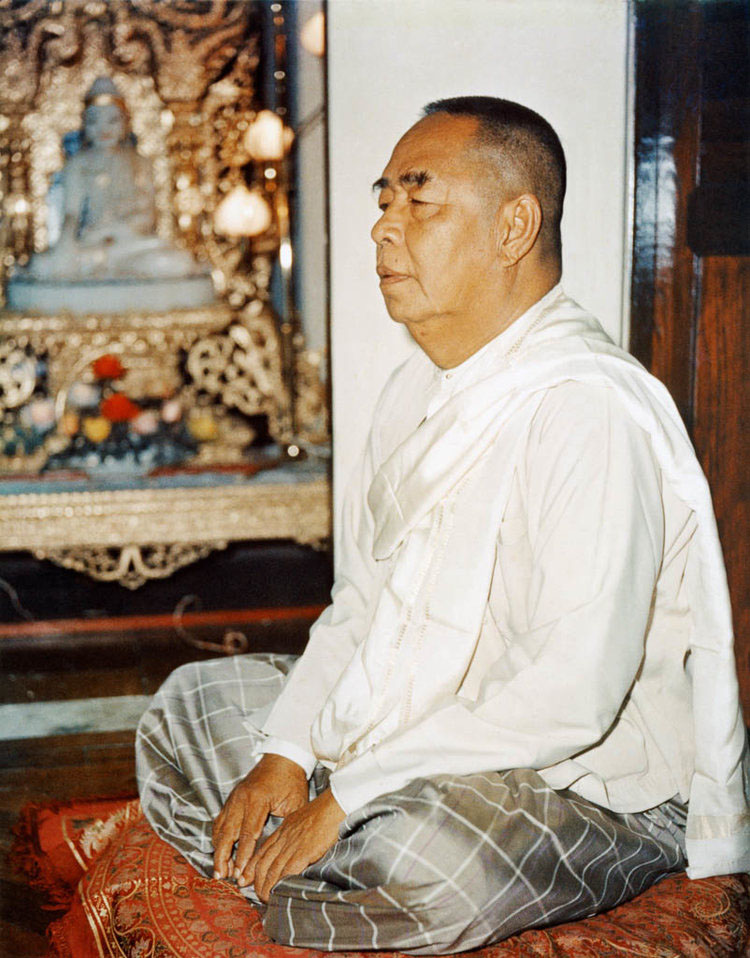
Practice
Meditation
A ten-day course in Vipassana meditation is the practice of the Eightfold Noble Path, as taught by the Buddha. The Path can be divided into three parts, namely: training in morality, training in concentration and training in wisdom.
Morality: Morality is the common denominator of all religions. At the Centre, students observe the five precepts of refraining from killing, stealing, sexual misconduct, lying and the use of intoxicating drugs and alcohol. By diligently observing this higher morality, one develops purity of physical and verbal actions.
Concentration: Beginning with the base of morality, training in concentration is taught using Anapana meditation (mindfulness of breathing). Through learning to calm and control the mind during the first five days, the student quickly appreciates the advantages of a steady and balanced mind.
Wisdom: The third training is wisdom (or insight). This is developed through Vipassana meditation, which is practised throughout the remainder of the course.
Buddhist meditation consists of two steps: Calmness of mind and insight (Vipassana). The student at the meditation retreat is helped to develop calmness and concentration by encouraging him to focus his attention on a spot at the base of the nose. In this way a student can be aware of the in-breath and the out-breath. When the mind is given only one object it gradually becomes calm and steady.
ANAPANA
Respiration mindfulness has several advantages:
- The breath is natural and common to all human beings.
- The breath is available at all times to focus the attention on it.
- Mindfulness of the breath is a technique that can be practised by members of any religion, or a person of no religion.
There is no reason why a good student in meditation should not be able to secure a concentrated mind in a few days of training.
With the practice of mindfulness of breathing, the mind becomes one pointed, clear and unwavering. It is a common belief that a person whose power of concentration is good can achieve better results. There are definitely many advantages that accrue to a person who undergoes a successful meditation retreat. It doesn't matter whether this person is a religious person, a business person, a politician, a worker or a student.
VIPASSANA
Vipassana, or insight meditation, is a process that enables the student to develop awareness of the natural characteristics of impermanence, unsatisfactoriness and non-self through personal experience. With a calm and concentrated mind the student focuses his attention inwards.
"The student becomes aware of and observes:
- the process of change (anicca) in all mental and physical phenomena;
- the process of change as unsatisfactory (dukkha);
- the illusory nature of a permanent self (anatta)."
This awareness will very gradually lead to detachment from the physical and mental elements that are experienced as changing. It will little by little free the meditator from reactions such as anger and desire. It will give that peace within which will show you that you are getting beyond the day to day troubles of life. It will take you, slowly but surely, beyond the limitation of life, suffering and death.
With diligence, the gradual process of mental purification will lead to the end of suffering and to full Enlightenment or Nibbana.
The teaching is through experience. If what you experience is for your wellbeing, you can accept it; if it is not for your wellbeing, you will not accept it.
